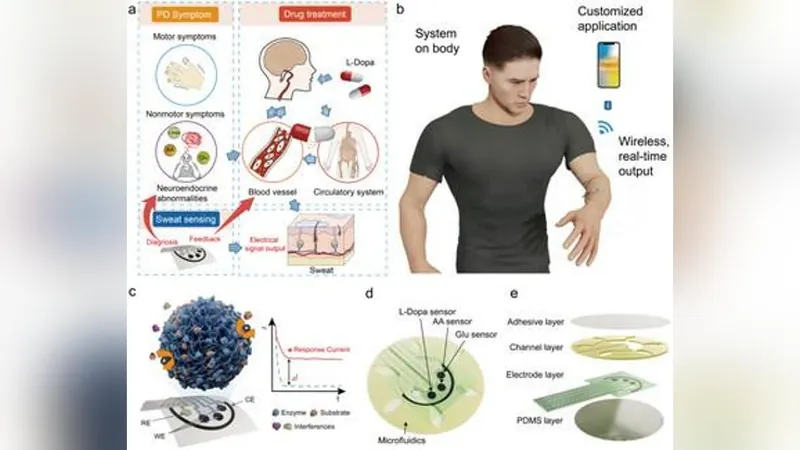
Revolutionizing Breast Cancer Screening: AI Collaboration Could Slash Costs by 30%!
2025-05-07
Author: Arjun
Harnessing AI for Efficient Mammography
New research reveals that the most potent way to harness artificial intelligence (AI) in breast cancer screening is through collaboration with human radiologists, rather than outright replacement. This approach could lead to a significant reduction in screening costs—up to 30%—all while ensuring patient safety remains intact.
The Delegation Strategy Takes Center Stage
The study, co-authored by experts from various prestigious institutions including the University of Illinois Urbana-Champaign, introduces a 'delegation' strategy. In this model, AI plays a crucial role in triaging low-risk mammograms, flagging higher-risk cases for closer examination by skilled radiologists.
Professor Mehmet Eren Ahsen, a leading voice in the research, emphasized that AI's true value lies not in replacing humans but in enhancing their capabilities through strategic task-sharing.
The Research Unveiled: Outshining Conventional Methods
Published in *Nature Communications*, the study compares three distinct strategies for breast cancer screening: the traditional method where radiologists review every mammogram, an automation model with AI handling all assessments independently, and the innovative delegation model. The latter emerged as the most cost-effective, saving up to 30.1%.
Why Human Skill Still Matters in Complex Cases
Despite the allure of complete automation, the study advises caution. Current AI lacks the nuanced judgment required for complex cases. Ahsen noted that while AI excels at identifying straightforward low-risk mammograms, human radiologists remain superior in interpreting high-risk situations. The delegation model enables AI to facilitate workflow, ensuring that human experts focus on the most challenging cases.
Mammography: A Critical Public Health Concern
With nearly 40 million mammograms performed annually in the U.S., the screening process is vital yet plagued by challenges like high costs and time demands. False positives can burden patients with unnecessary stress and anxiety, leading to a cascade of follow-up procedures and tests.
Streamlining Processes with AI: A Bright Future Ahead
The potential of AI paired with the delegation model can transform the mammography experience. Ahsen optimistically states that AI could swiftly flag any anomalies, allowing for immediate follow-ups while patients are still at the facility—streamlining what is often an arduous process.
Legal and Ethical Considerations in AI Healthcare Implementation
This research also opens the door to important discussions about AI's role in medicine, including issues of regulation and legal liability. While the delegation strategy is found to be most effective in moderate prevalence populations, it raises the question of how AI can be best utilized in areas with fewer trained radiologists, such as developing nations.
AI's Ever-Increasing Role in Healthcare
As AI continues to evolve, its 24/7 availability without the need for breaks presents immense opportunities for enhancing healthcare efficiency. This framework is not merely about what AI can achieve—it's also about understanding when and how it should be employed, ensuring it complements human expertise.





 Brasil (PT)
Brasil (PT)
 Canada (EN)
Canada (EN)
 Chile (ES)
Chile (ES)
 Česko (CS)
Česko (CS)
 대한민국 (KO)
대한민국 (KO)
 España (ES)
España (ES)
 France (FR)
France (FR)
 Hong Kong (EN)
Hong Kong (EN)
 Italia (IT)
Italia (IT)
 日本 (JA)
日本 (JA)
 Magyarország (HU)
Magyarország (HU)
 Norge (NO)
Norge (NO)
 Polska (PL)
Polska (PL)
 Schweiz (DE)
Schweiz (DE)
 Singapore (EN)
Singapore (EN)
 Sverige (SV)
Sverige (SV)
 Suomi (FI)
Suomi (FI)
 Türkiye (TR)
Türkiye (TR)
 الإمارات العربية المتحدة (AR)
الإمارات العربية المتحدة (AR)